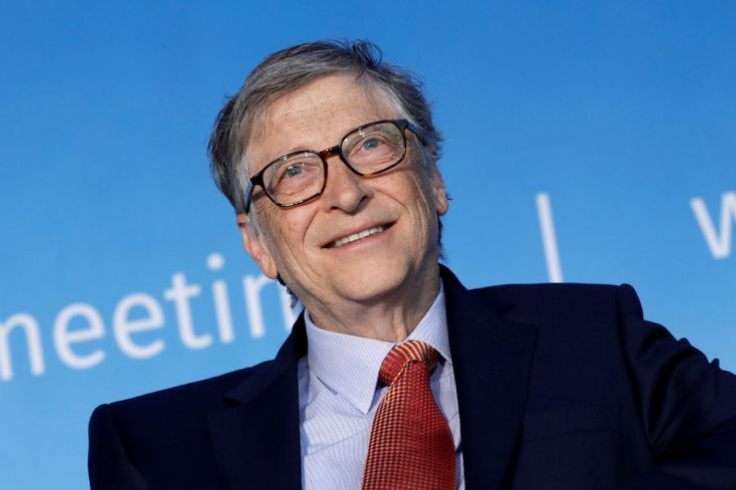Bill Gates In the "People by WTF" podcast series with Nikhil Kamath: AI on Work, Human Purpose and Rethinking Life at 40
Last year, William Henry Gates III, well known as Bill Gates, a co-founder of Microsoft and billionaire philanthropist, appeared in the "People by WTF" podcast series, hosted by Zerodha co-founder Nikhil Kamath. The podcast, launched in 2024 on YouTube channel owned by Nikhil Kamath, features in-depth conversations with influential personalities across various industries.
In the first episode, Bill Gates talked about his "fantastic relationship" with India and the "amazing people" he works with. The second episode of their conversation was released on Friday, April 11, 2025. Gates delved deeper into the implications of artificial intelligence (AI) on work, society, and human purpose.
Takeaway:
Bill Gates has been a vocal advocate and critic of artificial intelligence (AI); his perspectives encompass AI transformative's potential, its societal implications, and the ethical considerations it entails.
In the show, Zerodha CEO Nikhil Kamath told Bill Gates that he always seems in a hurry whenever he is in India and asked whether he is hard on himself. He questioned the billionaire as to why he keeps running around "so much" and meeting politicians and others.
"I think if you want to work hard and not fool yourself, you better be pretty hard on yourself," Gates answered.
He acknowledged how this mindset translated into his management approach.
The Microsoft co-founder has paid several visits to India, where he has held discussions with Prime Minister Narendra Modi and Union Ministers JP Nadda, Hardeep Singh Puri and Jitendra Sing,h among others. His most recent visit to the country was in March this year.
Nikhil Kamath sought Bill Gates' views on whether a huge population is a boon or a bane from a "very capitalistic lens." In reply, the 69-year-old said that artificial intelligence would have "changed things enough" about two decades from now that it will "free up a lot of time"
"You know, you can retire early, you can work shorter work weeks. It's gonna require almost a philosophical rethink about, okay, how should time be spent?" Bill Gates added.
Gates envisions that within the next two decades, AI will significantly alter the workforce landscape. He suggests that AI could eliminate many traditional scarcities, allowing people to retire earlier or work shorter weeks. This shift would necessitate a philosophical reevaluation of how individuals choose to spend their time.
On being asked what people will do if they don't have to work, he added:
I don't have to work. I choose to work.
Bill Gates thinks that it may not be that radical to think about whether people could retire at 40.
"But if you said you never need to work at least to me... What? That is so different," he stated.
Adding to this, Nikhil Kamath said that people can look forward to figuring out a hierarchy that might not look like the current one but is "another way to segregate ourselves."
During the formative years of Microsoft, Gates admitted that his leadership approach mirrored the way he treated himself—relentlessly high-pressure and narrowly focused on intellectual excellence. His reflections shed light on the challenges of leadership in the world of tech and the importance of adaptability, empathy, and recognizing diverse forms of talent.
“We were a fairly homogeneous, very engineering-orientated group. I sort of thought, if you can do math, you can do anything. And if you can’t do math, you can’t do anything,” he confessed.
He admits: ‘If you can’t do math, you can’t do anything’ was a mistake Gates described how he once held a binary view of talent—believing that proficiency in mathematics was the primary indicator of potential. This homogeneity, he acknowledged, led to missed opportunities to recruit and retain talented individuals who didn't fit the mold but could have brought valuable perspectives.
The analytical prowess often overshadowed other skills like communication, leadership, and cross-functional collaboration. Gates now views this assumption as a significant blind spot in his early career. As Gates shared, becoming a good manager was a process of trial, error, and deep self-examination—lessons he would later apply with greater impact at the Bill and Melinda Gates Foundation.
The transformation in Gates’ management philosophy accelerated after he transitioned to full-time work at the Bill and Melinda Gates Foundation. Unlike in the tech sector, the foundation required broad, multidisciplinary collaboration—working with policymakers, health experts, educators, and community leaders.
One of Gates’ most important takeaways was the realization that intelligence and capability come in many forms.
“The one change that could’ve made me a better manager earlier? Recognizing that talent isn’t one-size-fits-all.” Gates reflected.
Leadership, he learned, requires more than managing deliverables—it requires recognizing the diverse strengths of team members and adapting one’s style accordingly.
“I was able to take mistakes I'd made, and learnings from Microsoft, and bring that to the foundation,” he said.
At the foundation, success depended not just on IQ or coding skills but on empathy, negotiation, and cultural awareness—qualities that had been undervalued in Microsoft’s early days. This lesson became central to his work in philanthropy, where success is rarely achieved in isolation and often depends on partnerships across sectors and continents.
Today, Bill Gates continues to apply his trademark discipline, but without the rigidity that once characterized his leadership. He remains deeply involved in global initiatives and thrives in environments where learning and collaboration are prioritized.
“It is a lot of fun, I get to work with smart people. I'm learning all the time. I get to travel the world.” Gates said.
Despite decades of success, Gates emphasised that he finds joy in learning, even after changing the world.












No comments